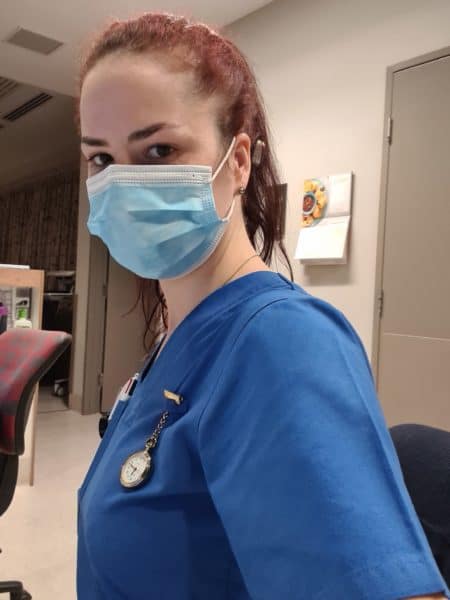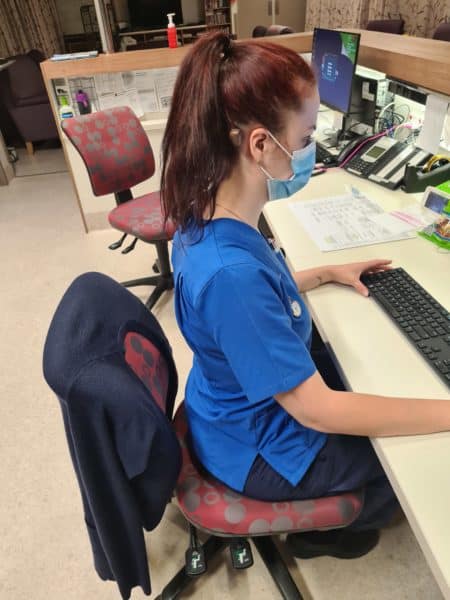Nursing home nurse, Alisha, has put the days of schoolyard bullying and self-doubt behind her since getting her second bone conduction implant. At 24, Alisha explains how being able to hear on both sides has allowed her to focus more on improving herself and getting where she wants to be in life. She also shares her best tips for managing hearing loss on the job.
Alisha didn’t hesitate to get a second bone conduction implant
“I was willing to try anything and everything to be able to hear on both sides, so I would be able to focus more on improving myself and getting where I wanted to be in life,” says Alisha.
Before getting her first Cochlear™ Baha® 5 Sound Processor three years ago, she had struggled with bullying at school and dropped out before completing high school. Milestones for other young people, like getting a driver’s license and a first job, seemed out of reach to Alisha.
“As I couldn’t hear properly, I didn’t feel as though I had the confidence to be able to drive a car,” she says. “Finding a job due to my hearing loss was another difficult feat – I felt as if I was held back, like I was being discriminated against.”
Those feelings of “being useless and hopeless” have changed since getting her bilateral Baha 5 Sound Processors.
“The thing it helped mostly with is my job,” says Alisha. “It has helped me get to where I am today and has made me a stronger, happier person than I was without them.”
Being bilateral Baha 5 makes a big difference in nursing
Alisha now works with the elderly in residential aged care at a small country town hospital. Many of her patients speak softly and with their heads down, and now with the added challenges of colleagues wearing masks, Alisha has had to develop some strategies to manage her hearing loss at work.
“My advice would be to just explain to anyone you work with that you have hearing loss,” says Alisha. “Tell them what works for you, whether that’s face-to-face communication, whether they need to talk a little slower for you.” She finds that most people are very understanding and more than happy to assist you, particularly if you ask them to repeat important instructions.
Using the Cochlear™ Wireless Phone Clip for her Android™ smartphone has also made calls clearer and easier for Alisha, both at work and in her personal life, by streaming the audio to her sound processors.
“Now I don’t have to have my phone on speaker, and I can have private phone calls if needed – especially in public,” she says.
In dealing with stressful situations or places where the noise levels are overwhelming, Alisha suggests taking a short break.
“Do not feel bad if you need to ‘take five’ for yourself, whether that is going outside for fresh air or going to a quieter area,” says Alisha. “If you are struggling to hear someone, let them know.”
Alisha’s success with her first Baha 5 Sound Processor made her decision to get a second implant easier, “As soon as my ENT (ear, nose, and throat specialist) told me about it, I decided to go for it.” She is now able to hear people talking in the distance and background sounds like the blinker in a car, birds chirping and people’s shoes on the pavement.
“Having two sound processors has helped me more than I thought it would,” says Alisha, “because with the two of them I can hear so much better than I did with the one.”
Find out more about Cochlear™ Baha® Systems
See how a Cochlear Wireless Phone Clip can also help you at work

